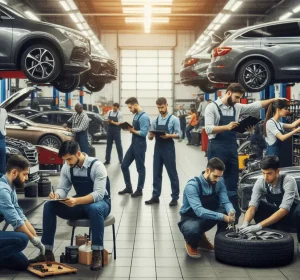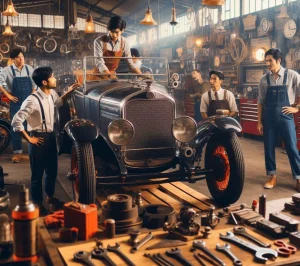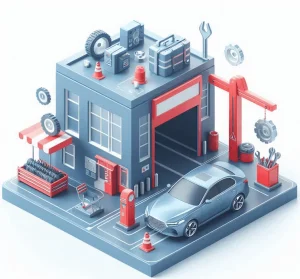Table of Contents
Several factors affect how fast your car’s brake pads wear. Taking care of your vehicle and practicing good driving techniques can increase your lifespan. For instance, avoiding “two footings” your pedals can save you money in the long run. This habit leads to unnecessary brake taps that do nothing to stop your vehicle and cause premature wear.

Brake Rotors
The primary function of brake rotors is to decelerate your vehicle by converting the kinetic energy from your moving car into heat through friction. Similar to brake pads, rotors require periodic repair or replacement due to wear and tear. Aggressive driving and riding the brakes can cause premature rotor wear, but with proper care, they can last longer. It is important to recognize signs of wear and tear on your rotors so you can schedule a maintenance appointment for a brake repair Alma GA. These include metallic grinding noise, vibrations or pulsations during braking, and uneven wear on the surface. It is also helpful to develop better driving habits, so you are not putting as much stress on your braking system. For example, if you are driving uphill towards stopped cars at red lights, try to coast and only use the brakes when necessary. The average load your car carries is another factor affecting how long your brakes will last.
Brake Pads
Brake pads are the workhorses of your vehicle’s braking system, creating friction with the brake rotors to slow and stop the car. However, these brake pads can wear down faster than some drivers realize. Thankfully, there are several tactics that drivers can use to extend their brake pad lifespans. These techniques include practicing smooth driving habits, avoiding left-foot braking (“brake riding”), and adhering to speed restrictions. These tips will help you get the most mileage out of your brake pads and save you money in the long run. Other maintenance tips for extending brake pad life include removing excess weight from your car and keeping it clean. Excess weight increases the force that your braking system has to exert, reducing its effectiveness and shortening the lifespan of your brake pads. The front brake pads are subject to more heavy braking than the rear ones.
Brake Fluid
The hydraulic liquid, or brake fluid, transfers pressure and force from the brake pedal to the wheel cylinders and calipers. It is hygroscopic, meaning it will absorb water and other contaminants from the air over time. It can make it less effective in transmitting force and pressure, reducing lifespan. It is essential to change your brake fluid as recommended by your owner’s manual. It is also good to have a professional bleed your brake lines every two to three years to remove any air trapped inside the system. Avoid hard braking, which can reduce the lifespan of your brake pads and rotors. Give yourself plenty of room to overtake the car before you as you slow down. It can help you coast to a stop and reduce the strain your brakes must endure. In addition, make sure to follow all road signs and traffic lights. It will help to keep your braking system working at its best.
Brake Lines
Brake lines are responsible for transferring brake fluid to the brake calipers that apply pressure on the brake drums and rotors to stop your car. They will ultimately need to be changed because, like the rest of your braking system, they are not unbreakable. The first sign you’ll need to replace a brake line is when the brake pedal drops to the floorboard or takes longer than usual to come to a stop. You may also notice rust or moisture on the brake lines. To replace a brake line, start by raising the vehicle and loosening the fastener. Then, remove the old brake hose. It’s usually attached to the caliper with a banjo bolt, which requires a unique tool to loosen. Once the bolt is removed, it’s possible to pull off the hose without too much mess.





More Stories
Powerful Secrets Every Cars Mechanic Knows for a Smoother, Happier Drive
Transform Your Ride: Discover the Joy of Automotive Refinishing Mastery
Celebrate Automotive Beauty: Proven Auto Restoration Parts for Brilliant Results